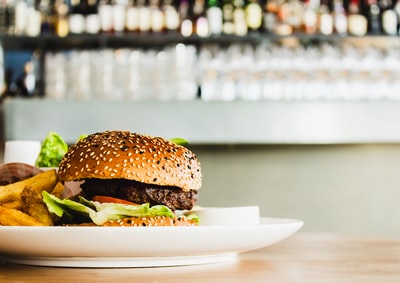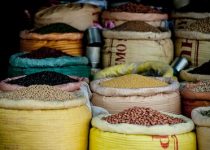Does It Pay To Buy Organic? An Examination Of The Organic Food Market
An increasing number of European and American consumers are considering the quality of the organic and natural foods produced in their area, and as properly analyzed it is a sound investment. organo-pharma includes crop production to realize a crop yield, without the application of harmful pesticides and artificial fertilizers just like conventional farming; and it includes the preservation of natural habitats (soil, water, and energy resources). The organic food market represents an efficient, low-cost, and eco-friendly approach to agriculture.
TheJudging process for organic inclusion in the marketplace is delicate and lengthy. Not only do organic producers have to overcome thehoe-juice-icon of consumers’ discontent, but they also have to be able to scientifically demonstrate the superiority of their low-chem agricultural products over the conventional or regular products. When the English food manufacturer, Glaxo Smithkline, did so, it was a turning point in the history of organic foods.

In fact, Smith had prior experience with the organic market. In the late 1990s he had begun using organic foods and he was quickly involved in the growing organic food market. The two eventually changed their strategy to Whole Foods Market, and sold off Glaxo’s organic products.Today, organic is a much more significant driver of sales for both farmers and consumers.
This is whyprising farmers have joined together in a quest for common agreement on standards to be met before certification bodies begin toertap. An early problem was that there were no agreed upon definitions of organic agriculture. While many concluded that the term referred to only products certified by a certification body, others saw it as referring to processes as well.The confusion continued on for years.While certain peace of mind about the labels came out of the collateral damage brought about by the various sides, there is no valid certification body around to certify food as “organic”.
So what do you need to know about organic food?
Organic farmers have to meet several standards set by the USDA, United States Department of Agriculture, and the European Union. For example, organic farmers may not use synthetic herbicides, antibiotics, and fungicides. They may not use fertilizers that include petroleum. And they must maintain separate compost piles.
Recycling of organically grown fertilizer and other organic chemicals is vastly more efficient than conventional method of fertilization.
With few exceptions, organic crops are easier to grow and bring higher yields. Organic minimum requirements are well known and uniformly applied.
Unlike conventional, organic food is distinctly labelled in some countries in a standardized way and therefore easily discovered.
Common organic food production methods include: farming techniques, biological pest control, and the absence of artificial fertilizers and pesticides.
flavours and aromas are preserved with organic methods of food preservation.
The biggest hurdle for organic food definition is defining an organic product. This is tricky. Ingredients must be used in food for which they have been grown. They must be created as they were intended to be, and not something that came from a mixing of 2nd and 3rd world countries.
To be called organic, a food product must be 95% pure. This means that it must be made from organically grown fertilizers, and pesticide free. The remaining ingredients, even the salt and water, must be organic.
There are many more specific criteria that apply to organic food. It is important to read food labels and know that organic does not mean “organic” in a strict sense. Also, you may want to investigate your specific community’s rules for food production and packaging.
Community standards vary from one community to another and even country to country.
However, most communities have rules against genetically modified foods. This is one of the biggest tests for those who buy organic foods. Recently, there are many reports that some foods labeled organic may not be truly organic.
Again, most community standards are relaxed a bit more with organic growing. In some places, less strict guidelines are required. This is because there is no regulation to require that foods labeled organic must be.
However, some leaders in the organic food movement will tell you that a special method is needed to ensure that raw foods, including foods that grow organically, do not contain any residues of pesticides or antibiotics.
These are especially true of foods that grow in fields that have been grown with chemicals. The biggest worry is that the agriculture industry removes the antibiotics and pesticides from the soil.
In addition to the generally happier and healthier environment, organic foods are able to contain the full spectrum of vitamins, and minerals. This ensures that you are getting enough of the nutrients your body needs, and your body isn’t geared to process foods that are extra processed.
This is one of the biggest advantages of buying organic foods. They have to be processed to remove fatty acids and other things that our bodies don’t exactly need.



